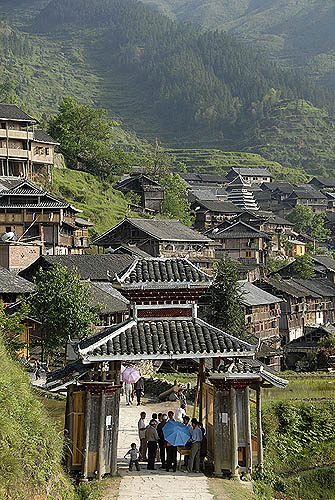|
Pilot project
 |
|
KEEPING THEM INTACT: The Dong Ethnic Ecomuseum in Tang'an, Guizhou Province (CFP) |
In 2008, an ecomuseum was established in Anji County, east China's Zhejiang Province, the first of its kind in east China. Anji is one of those counties in the Yangtze River Delta that have developed quickly. The county enjoys a long and rich cultural tradition, with human activities tracing back to the Paleolithic Period. It harbors diverse ethnic cultures with distinctive characteristics, such as mountain inhabitants and the She ethnic group lifestyle. Unique ecological resources and cultural traditions there have laid a solid foundation for a local ecomuseum. A successful ecomuseum in Anji will set an example to establish others in the Yangtze River Delta, east China and across the country.
Ecomuseums also provide tourists with a chance to buy products as they were produced decades or centuries before. "At a textile ecomuseum in Norway, I caught sight of a textile workshop that still produced blankets by using traditional weaving techniques. The blankets were in high demand by visitors to the site. In a folklore museum of the Netherlands, one of the most popular exhibits was produced with traditional clog-making techniques," Su said, adding that other countries' experience could inspire the operation of domestic ecomuseums.
"The former site of Anji's traditional handmade bamboo product workshops should be retained, where the handicraft and the products would be preserved and presented as an intangible cultural legacy," Su said.
However, he warned that turning ecomuseums into scenic spots would deviate from government's original intention of protecting and preserving tradition and culture. |
